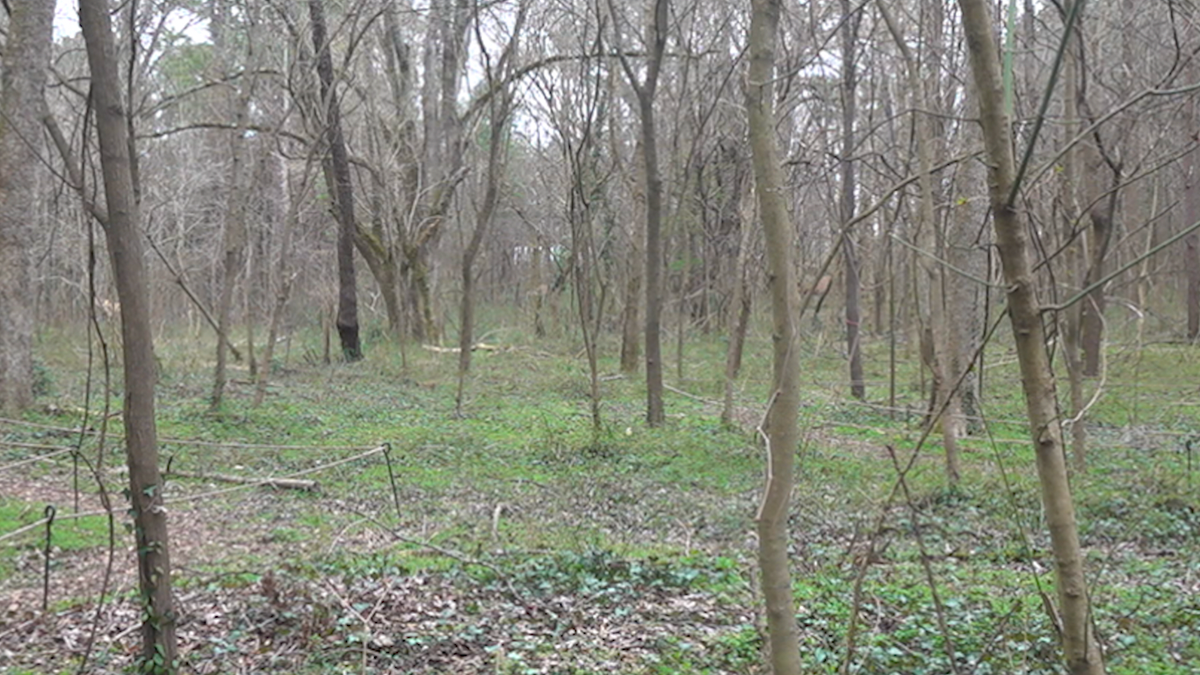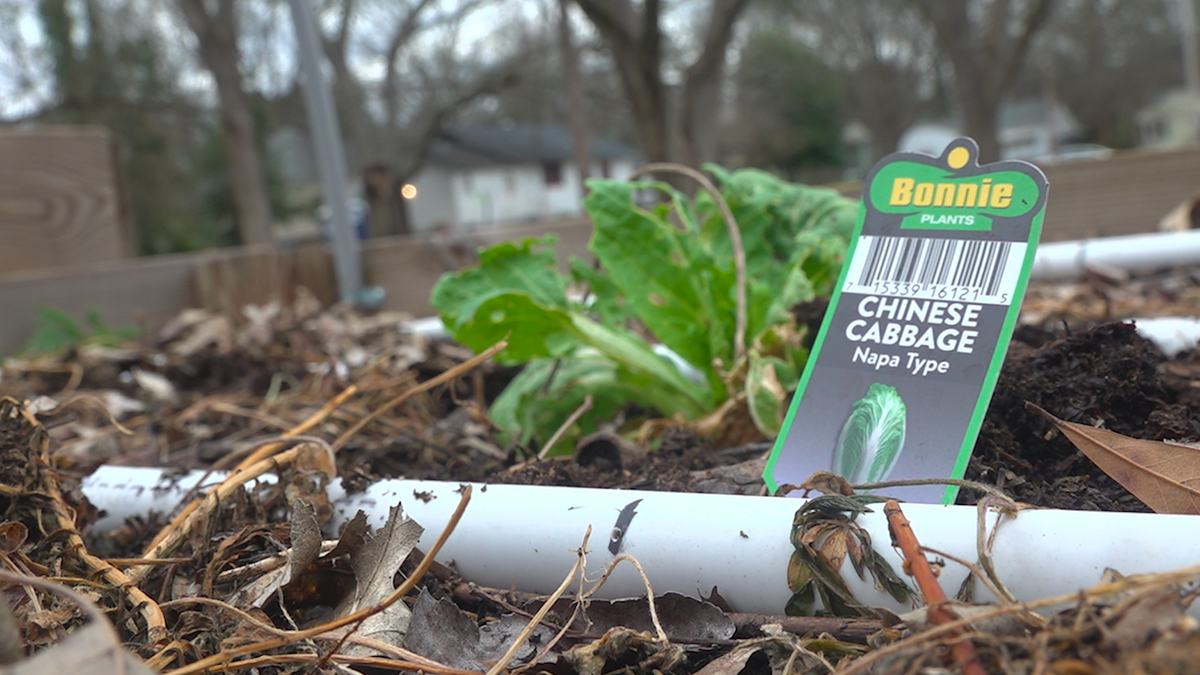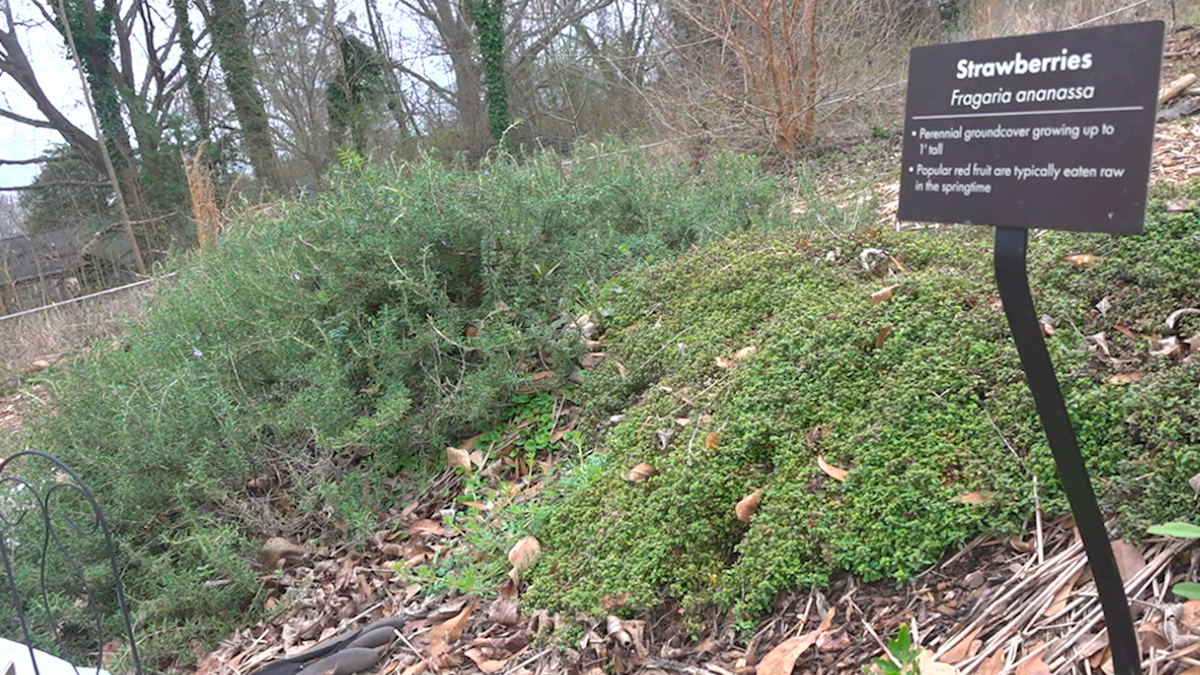'Food forest' becomes a resource for those in need during coronavirus pandemic
To combat the issue free food forests are popping up nationwide to provide food to communities in need.
ATLANTA – Millions of Americans live in food deserts across the country, places known to be without affordable and healthy food options. The U.S. Department of Agriculture estimates that 19 million people in the U.S. are more than 1 mile from the nearest grocery store in urban areas, and more than 10 miles away from a grocery store in a rural area.
Free food forests are popping up across the country to combat this problem. The largest free food forest in the nation is in an Atlanta community that needs it most.
Browns Mill food forest sits on more than 7 acres of land. Years from now, the land will produce tons of fruits and vegetables for the community.
Celeste Lomax, food forest volunteer and community member, said her community has lacked healthy food for years.

Celeste Lomax describes the 7 acres of land that the Browns Mill Forest sits on. (Source/FNC Jayla Whitfield)
"The closet store is about 5 or 6 miles so we either have to catch a bus or Uber or some kind of other means of transportation to get to the store," Lomax told Fox News.
Celeste said her community felt neglected until the Browns Mill food forest was built.
The forest sits on land that was historically a farm — The Conservation Fund purchased it and restored it to provide food supplies to a struggling community.

The Browns Mill food forest land. (Source/FNC Jayla Whitfield)
Kelsi Eccles, the Urban Conservation Communications Manager at the fund, said the land was purchased to provide for a particular part of Atlanta: the Thomasville Heights and Browns Mill areas.
"In this case, the Thomasville Heights and Browns Mill area [are] considered a food desert. And so, having access to fresh produce is what this community needed. Our first priority is to make sure that community members here have access to it," Eccles told Fox News.

A map that shows that the Thomasville Heights and Browns Mill area is, just south of Atlanta. (Source/FNC Jayla Whitfield)
Although the food forest is the largest in the country, it’s still developing, and this process could take years.
"At this stage the food forest is more of a demonstration site and so it’s about learning how to compost and learning how you can garden. But it’s not enough of it here to really support the city of Atlanta, let alone the nation," Eccles said.
The forest has received dozens of visitors from out of state and across Georgia to get free food. However, if this continues to happen, the residents that live near the forest won’t have the fresh produce that they need.
"If other people are coming from the outside area to harvest or take of the land then they are actually taking from the community that’s helping to grow the food," Lomax said.

Chinese cabbages growing at the Browns Mill food forest. (Source/FNC Jayla Whitfield)
According to the National Recreation and Park Association (NRPA), there are hundreds of communities in need of a food forest.
Allison Coleman, the director of health at NRPA said that food deserts reach beyond the state of Georgia.
"So many people not only in Atlanta, are living in communities where they have limited access to the healthy, fresh affordable foods. And of course, there are so many others that are struggling to put food on the table, which has gotten substantially worse since the COVID-19 pandemic," Coleman told Fox News.
CORONAVIRUS: WHAT YOU NEED TO KNOW
Coleman said the goal is to help communities over the long term — but that may be a problem.
"I mean, common sense will tell you that we won’t have much of a forest to give to the community because people are taking it that are from Marietta or even Florida," Lomax said.
Currently, the forest is dormant, but it will bloom in the spring. The food forest volunteers said the community will be able to visit and collect free food on Wednesdays, from 9 a.m. to 1 p.m.

Strawberries planted at the Browns Mill food forest before they bloom. (Source/FNC Jayla Whitfield)
CLICK HERE FOR THE FOX NEWS APP
Volunteers at the Browns Mill food forest said it takes a village to make this forest happen. There are several partners involved including Trees Atlanta, Greening Youth Foundation, U.S. Forest Service, Concrete Jungle, West Atlanta Watershed Alliance and Eco Action.











































